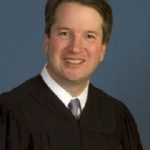Widgetized Section
Go to Admin » Appearance » Widgets » and move Gabfire Widget: Social into that MastheadOverlay zone
Weiser worried Kavanaugh will skew SCOTUS, erode rule of law under attack by President Trump
Tuesday’s chaotic kickoff to Judge Brett Kavanaugh’s U.S. Supreme Court nomination hearing before the U.S. Senate underscores the nation’s bitter partisan divide and the critical importance of the issues the SCOTUS will decide in coming years. The ripple effects are being felt in Colorado, where opposing Dems are calling for a careful examination of Kavanaugh’s record.

Phil Weiser
Former dean of the University of Colorado Law School Phil Weiser, whose expertise is in constitutional law, said he’s skeptical of the nomination by President Donald Trump of a conservative judge who in the past has said presidents should have broad powers and perhaps be immune from civil litigation and prosecution until they leave office. This despite Kavanaugh’s role in independent counsel Ken Starr’s 1990’s investigation into former President Bill Clinton.
“I’m actually concerned about Kavanaugh’s views on those topics [including whether a sitting president can be subpoenaed],” Weiser told RealVail.com in July. “Is a president picking someone who has views that are on the fringe of executive power in service of a president who is under investigation for abuse of that power – something that is a threat to our rule of law and democracy?”
Weiser was referring to the Russian election interference and conspiracy investigation of the Trump administration that’s currently being conducted by special counsel Robert Mueller. The probe has already netted dozens of indictments, convictions and guilty pleas from Russian intelligence operatives and members of Trump’s 2016 campaign.

Brett Kavanaugh
Weiser, a former deputy assistant attorney general in the Obama Administration Justice Department, is the Democratic candidate for Colorado attorney general in the Nov. 6 election. He’s being opposed by Republican 18th Judicial District Attorney George Brauchler, who’s made it clear that he thinks federal issues should be left to Congress, not debated in state AG races.
“Mueller’s going to do his work, we’re going to learn more, and for me it’s really about true north,” Weiser said. “It’s about defending core institutions that we have to do here at home. If we allow the type of politics that has been happening at the national level to corrupt and really inject toxicity or just not normal behavior into Colorado, our institutions, our norms are threatened.
“I’m going to stand strong for protecting democracy here in Colorado,” Weiser added.
The issue of whether Trump’s administration or in fact the president himself may have committed high crimes and misdemeanors, however, will ultimately be decided by Congress, Weiser admits.
“Impeachment is more of a political issue than a legal issue, and as we evaluate the conduct of the Trump administration and Trump as a candidate, we need leaders calling it honestly with a commitment to the rule of law and our democratic institutions,” Weiser said. “State AG’s are a part of that conversation, but ultimately that process is going to have to happen in Congress.”
Weiser added he is even more worried about the overall direction of the high court should Kavanaugh be confirmed to replace retiring Justice Anthony Kennedy, who was often a swing and moderating vote on key issues in recent years.
“I am concerned about Kavanaugh’s influence on a court that is on the far right,” Weiser said. “The supreme court at its best is an institution that has [Anton] Scalia’s mindset, [Ruth Bader] Ginsburg’s mindset and everything in between. Right now, what we’re facing is a court that is pulled to the far right so that on matters like Roe versus Wade the case is going to be hardwired before it even gets decided. That is also a real threat that Kavanaugh poses.”
Weiser, who clerked for both Ginsburg and former justice Byron White, points to the history of supreme court nominations, including the unsuccessful 1987 pick by then President Ronald Reagan of conservative judge Robert Bork.
“What happened with [Robert] Bork’s nomination is we had a national conversation about whether we were willing to have far-right-minded people dominate the court, and that was for a seat that [Lewis] Powell had held. Powell had been a swing vote,” Weiser said.
“And the call then, as I believe the call now should be, was a justice in the mode of Powell. We need a justice in the mode of Anthony Kennedy, who is more moderate, more mainstream, open to thinking about issues so they’re not decided in a hardwired way before they get to the court.”
Overall, Weiser said the rule of law in the United States is at stake.
“We need to create an environment that’s clear about duties to the republic and that includes the rule of law, and if someone commits crimes, or if someone abets crimes, we do not look the other way because they’re in our party,” Weiser said. “It’s principle above party.”


